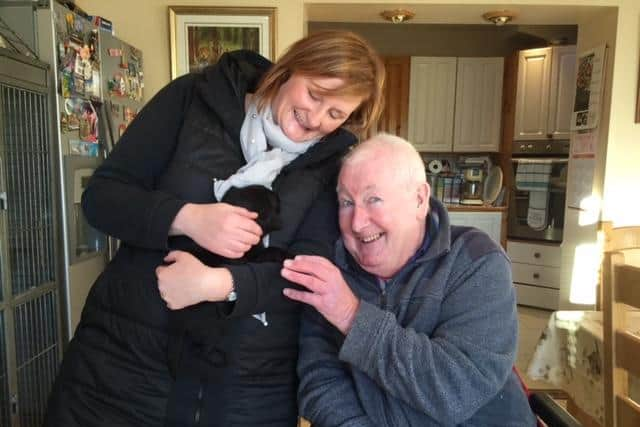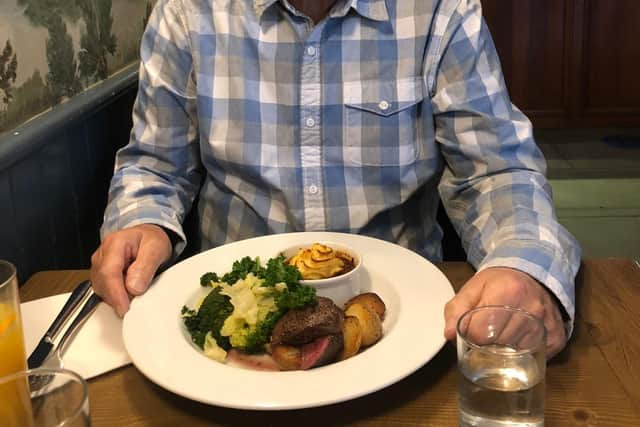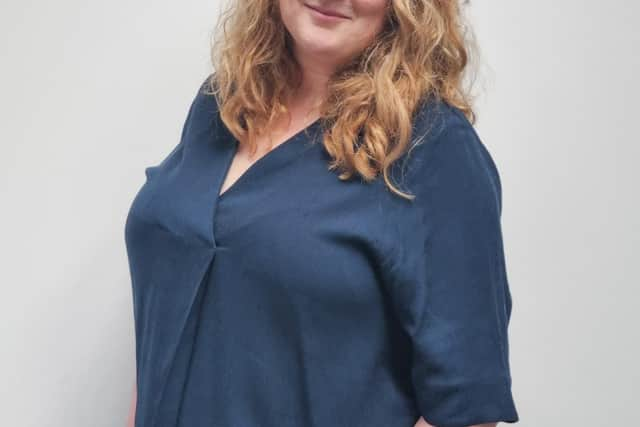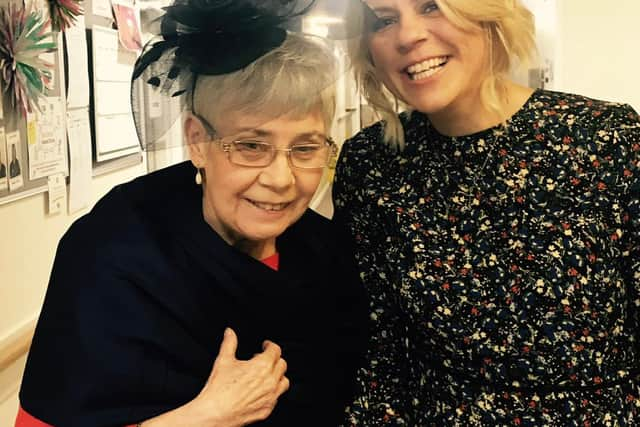‘We don’t feel that sense of hope’ - fears vulnerable people ‘forgotten’ as pandemic response evolves
It comes as the Scottish Government is set to publish a revised strategic framework for the remainder of the pandemic in the coming weeks.
But some Scots feel left behind by recent optimism from leaders.
Advertisement
Hide AdAdvertisement
Hide AdLynn Williams, 51, a full-time unpaid carer for her husband in Paisley, said there is a “sense of hope that I certainly don’t feel”.


Her husband, who has a spinal injury and other complex conditions, is “terrified” of catching Covid, while she is cautious as there is no one to care for him if she becomes ill.
“At the moment we're fearful and very uncertain about what the future holds and what it means in terms of having any normal life again,” she said.
“It may come, but at the moment I honestly can't see that that will be the case. What I see is a deep lack of understanding from politicians about how people feel.”
Ms Williams fears a “two-track society” as others return to normal but vulnerable people continue to avoid leaving the house except for essential shopping and medical trips.


The removal of Omicron-related restrictions has not greatly changed life for Edinburgh-based Jackie McDonald.
The 58-year-old has blood cancer myeloma and AL amyloidosis, meaning she has a weakened immune system and was on the shielding list at the start of the pandemic.
Back then she was sent “endless” information from the government, but she now feels a lack of guidance.
Advertisement
Hide AdAdvertisement
Hide AdShe is currently avoiding crowded places while undergoing treatment.


“My world is quite small at the moment, it’s just a matter of the GP or the hospital, and lots of outdoor things,” she said.
“I don't meet people inside at all. But it does very much seem like it's my own interpretation of what's going on rather than any guidance I'm getting.”
She added: “The facilities and the services that we're accessing like GPs and all that kind of thing, they're still very much on high alert so it doesn't seem very different to us.
“We were the first ones that this pandemic affected, and we're going to be the last ones that it affects.”


Denis Cairns, 68, from Dunkeld, was diagnosed with myeloma in 2015, and was used to avoiding crowded places with his wife before the pandemic.
This was made easier because he had already retired but he feels for those in a similar situation who find it more difficult to cope.
“We’ve always been cautious… and that’s how we have tended to lead our lives over the past few years because of the nature of my condition,” he said.
Advertisement
Hide AdAdvertisement
Hide AdCharity Myeloma UK is worried about clinically vulnerable people as the pandemic develops.
“We are seriously concerned that clinically extremely vulnerable patients are being forgotten,” said acting chief executive Jo Nove.
She added: “We are rushing into an uncertain future, in which immunocompromised patients are being asked to make difficult choices and assess their own risk without a clear framework of protections in place.”
Contact Scotland, a charity supporting families with disabled children, is also concerned.
While the rollout of vaccines to at-risk children has helped, many families still feel “anxiety” about restrictions lifting, said manager Susan Walls.
“Returning to normality for some disabled and clinically vulnerable children is difficult,” she said.
“We are hearing from families whose children have found the return to school a struggle and are still on part-time timetables.
“Children on the autistic spectrum have struggled with disruption to their routines and increased anxiety, and some children with complex needs or health conditions find a full school week draining.
Advertisement
Hide AdAdvertisement
Hide Ad“It’s important that children in this position are given access to therapies and mental health support so they are not left behind.”
Relatives have warned people in care homes also risk being left behind.
Government self-isolation guidance has recently been eased, but is still stricter than for the rest of the population.
“Everybody is moving forward, there's talk about living with the virus, but care home residents are still facing disproportionate restrictions,” said Alison Leitch, a member of campaign group Care Home Relatives, whose mother lives in a care home.
Residents testing positive are required to isolate for ten days, and homes with outbreaks must close for 14 days, with only named visitors allowed.
Care Home Relatives says this leads to “rolling lockdowns” which can last for weeks, especially in large homes, even when most residents are not affected.
Ms Leitch called on decision-makers to change these rules in light of Omicron’s reduced impact.
“Unfortunately care home deaths have gone up in the last few weeks, but they are nothing on the scale of what they were previously, so why are the restrictions still as harsh?” she said.
Advertisement
Hide AdAdvertisement
Hide Ad“Deaths are still happening in the public domain, but there are no restrictions there.
“Every death is awful, but if the rules are robust enough for the public, why are they not robust enough for care home residents?”
Many clinically vulnerable people praised the government for maintaining the requirement to wear face coverings indoors.
But the Distance Aware scheme of lanyards and badges requesting others maintain social distancing has had a mixed response.
Some have welcomed it, saying the badges may avoid awkward conversations, but others fear they may be singled out, potentially for abuse.
The Scottish Government said the Distance Aware scheme is intended to provide “extra reassurance”.
A spokesperson added the government “regularly communicates” with those at higher risk, including a letter from the Chief Medical Officer in mid-January as restrictions began to ease.
“These letters contained tailored advice to ensure those on the Highest Risk List have the support they need as we adapt into a new phase of the pandemic, including specific mental health advice as we know that those at highest clinical risk are most likely to have suffered from mental health issues,” they said.
A message from the Editor:
Thank you for reading this article. We're more reliant on your support than ever as the shift in consumer habits brought about by coronavirus impacts our advertisers.
If you haven't already, please consider supporting our trusted, fact-checked journalism by taking out a digital subscription.
Comments
Want to join the conversation? Please or to comment on this article.
